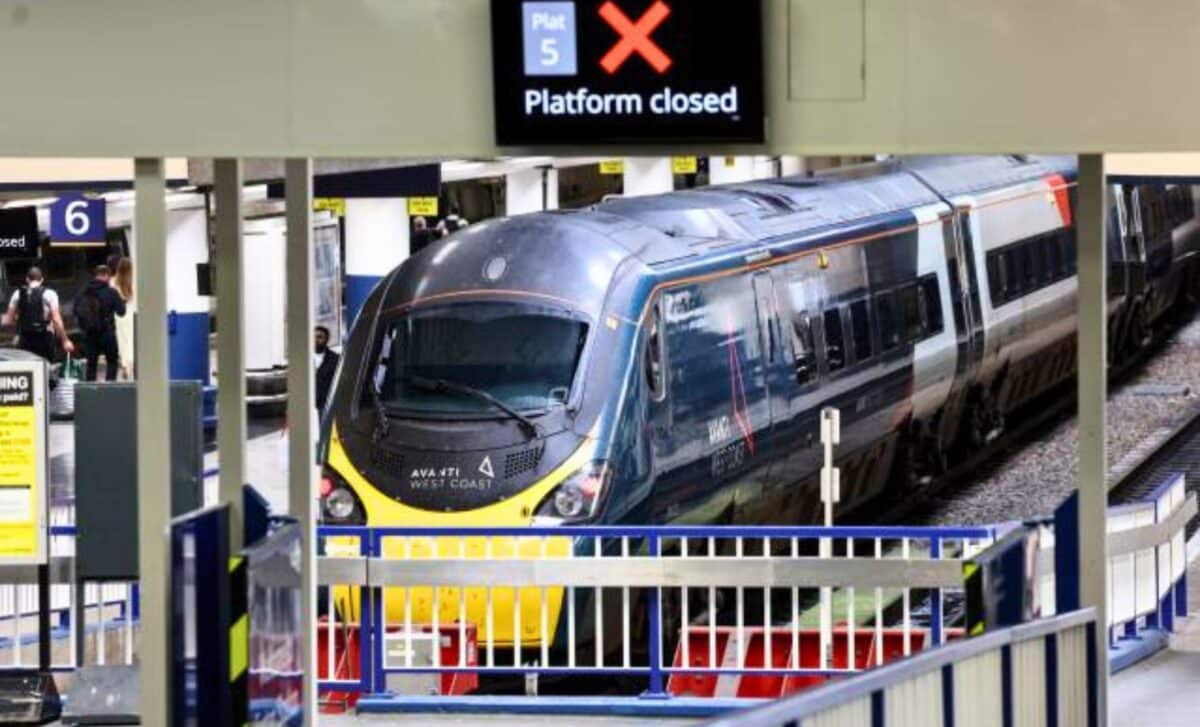Rail passengers across the UK face a new wave of train disruptions as train drivers commence a new cycle of train strikes on Monday, despite several attempts by the industry to restart negotiations.
Train Strikes Disrupt England as Union Demands Higher Pay Offer
Aslef Union train drivers will engage in a day-long industrial action at each of England’s national train operators over the course of three days starting from Tuesday until Thursday, while an overtime ban will apply across the country from Monday until Saturday.
The majority of train operators won’t run any trains during their strike days, impacting some cross-border operations to Wales and Scotland. The additional ban will also shorten schedules and seriously disrupt the operators who rely on voluntary shifts to run their operations.
The first wave is due to affect commuter routes into London on Tuesday, May 7, as drivers will strike at c2c, Greater Anglia, Great Northern, Thameslink, Southeastern, Southern/Gatwick Express and South Western Railway.
Another 24-hour industrial action will follow on Wednesday, at Avanti West Coast, Chiltern Railways, CrossCountry, East Midlands Railway, Great Western Railway and West Midlands Trains; and at LNER, Northern and TransPennine Express on Thursday.
According to the union, train strikes will continue as drivers demand a higher pay offer, with some members going five years without getting a pay rise.
Train Drivers’ Union Continues Strikes Amidst Negotiation Efforts for Higher Pay
Improvements are on the way, as the Rail Delivery Group, that represents train operators, contacted Aslef late last week to encourage formal negotiations, which the union agreed upon.
An RDG spokesperson asserted that it had “written to the Aslef leadership to try and find areas of common ground that will allow us to move to formal negotiations”.
The Aslef general secretary, Mick Whelan, told members he would “explore this avenue in an effort to resolve this dispute”.
In early 2023, the drivers’ union rejected a two-year deal worth 4% annually, but including changes to working conditions.
In terms of percentage, the rise was reduced compared with what was offered to other industry parts.
In a speech preceding this next set of rolling train strikes, Whelan declared: “We don’t want to be doing this. Nobody wants to be losing money, but unless we do this, nobody is going to come to the table and talk to us. So we’re left in a position whereby the only way that we can articulate our voice is to take action.”
In February, Aslef members voted overwhelmingly to carry on their industrial action.
Whelan further stated: “I’m out there talking to my people most nights of the week in branch rooms and elsewhere, and they want to keep going. They want a resolution. And after 22 months, why would you stop? We have to believe there will be an endgame; we have to believe there will be a resolution to this.
“After half a decade without a pay rise, should we stop and go another half a decade without?”
According to the government, the offer would take the average pay of a train driver to £65,000, but also required “modernisation” as well as workplace changes as part of the agreement.
Whelan stated: “There was no workplace reform. Nobody could explain to me how cutting people’s sick pay makes a railway run quicker, or more resilient, or improves performance. It was a land grab for Ts & Cs [terms and conditions].
“We’ve done 17 pay deals in the last 12 months across the rest of the rail industry,” including in Scotland and Wales, the Elizabeth line, and for freight and open access rail operators. “None of them required any of these changes – this has got nothing to do with running a railway.”
A spokesman from RDG highlighted that the train strikes would “inflict further damage on an industry that is receiving up to an additional £54m a week in taxpayer cash following the Covid downturn”.
They warned that the services will be reduced from Monday, with the additional ban’s effect varying across the country, and suggested to passengers to check before travelling.









